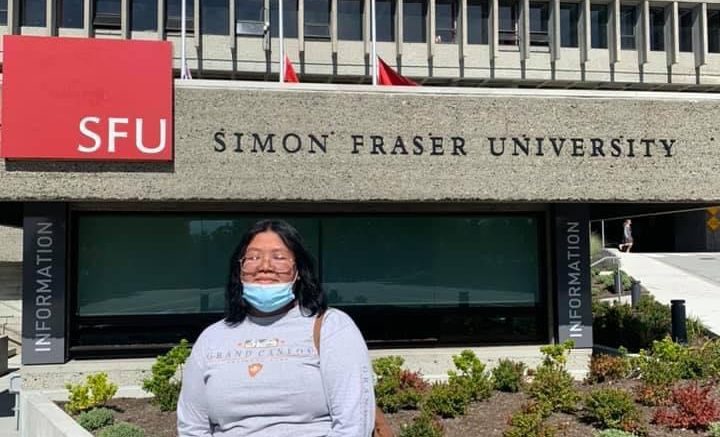Since she was a young girl, Angelina Arrowmaker knew she wanted to be a doctor to better care for her small community of Wekweéti.
It all stems from the community’s lack of on-call health care providers, especially Indigenous staff. Often residents have to travel to other hubs in the North to receive adequate care.
“It’s important to have people of colour in the health care system to help people of colour,” she says.
She was just four years old when she came to that realization.
Arrowmaker is now 18-years old and is taking the necessary steps to reach her goal.
Arrowmaker and three women from the NWT have each received scholarships from De Beers Group to invest in their science, technology, engineering, and mathematics (STEM) degree programs.
She’s enrolled in the biomedical physiology degree at Simon Fraser University in Vancouver and has been given $3,000 to help in her studies.
Growing up in a small town and making the jump to a big city like Vancouver was difficult.
“It was overwhelming at first, but I feel like I’ve come to enjoy it.”
Arrowmaker described it as a kind of culture shock.
“You don’t really hear of people from Wekweéti going off to university,” she says.
Being so far away from home, she makes a point to ensure others know where she comes from.
“I carry my hometown on my shoulders.”
Although the pressure can be overwhelming at times, she says she’s inspired knowing her community is rooting for her – and ultimately just wants to make her parents proud.
“It’s quite empowering being in a male-dominated field,” she says, “Women are just as capable of doing those same things, maybe even more.”
Arrowmaker says she’s prepared to push the limits and is working on her self-confidence to stand out from the competition.
Like many young professional women, imposter syndrome plagues one’s ability to see value in accomplishments and an overall doubt in one’s abilities.
She argues that the quality of education she received compared to her southern predecessors is different and lacking in some areas.
“In the small communities, it’s kind of all the grades jumbled in one room,” she says, “sometimes people aren’t really learning at the level that they’re supposed to be.”
“But as hard as it is, it is worth it in the end,” she says, “It’s a privilege to be able to go to school.”
After a gruelling first semester, Arrowmaker is excited to come home for the holidays, especially to see her grandma and help her family back out on the land again.
“The North is my home,” she says, “and I’m really missing it right now. I’d love to go back there and work there.”
Once she completes her certifications, Arrowmaker wants to serve her Tłı̨chǫ communities and assist in securing more Indigenous-focused health services.





